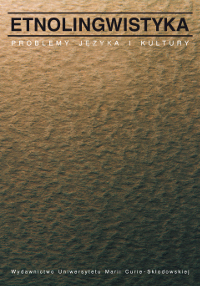Родина, Отечество, Отчизна в дискурсивных практиках современного русского языка. Опыт анализа культурной идиомы
RODINA, OTECHESTVO, OTCHIZNA IN DISCURSIVE PRACTICES IN CONTEMPORARY RUSSIAN TOWARDS AN ANALYSIS OF CULTURAL IDIOMS
Author(s): Irina SandomirskajaSubject(s): Anthropology, Language studies, Language and Literature Studies, Applied Linguistics
Published by: Wydawnictwo Naukowe Uniwersytetu Marii Curie-Sklodowskiej
Keywords: the collapse of the Soviet Union; Russia; collective identity; nation; the history of the motherland; culture-specific idioms
Summary/Abstract: After the collapse of the Soviet Union in 1991, Russia made its comeback onto the political maps of the world. Referring to Jacques Derrida’s observation, the author says that.it if in the term Soviet Union there were no ethnic, national and religious components to constitute the basis for a collective identity of the country’s inhabitants, the return of the traditional name Rossiya, (Russia) renewed the practice of identifying oneself with the others in national terms. Furthermore, the meaning of Rossiya and russkiy actualized the sememe ‘ethnicity’. However, the school subject until recently called the history of the Soviet Union is now officially referred to not as ‘the history of Russia’ but ‘the history of the homeland’, more specifically istoriya Otechcstva. Why has this term been chosen out of the three possible Russian words: rodina, otechestvo, otchizna?The author treats the words as ‘cultural idioms’ in the sense discussed in her article Idioma i kultura: v poiskakh obshchego osnovaniya (in Etnolingwistyka 8), analyzes them conceptually and narratologically and reveals their specific ideological and political meanings.
Journal: Etnolingwistyka. Problemy Języka I Kultury
- Issue Year: 11/1999
- Issue No: 11
- Page Range: 51-68
- Page Count: 18
- Language: Russian

